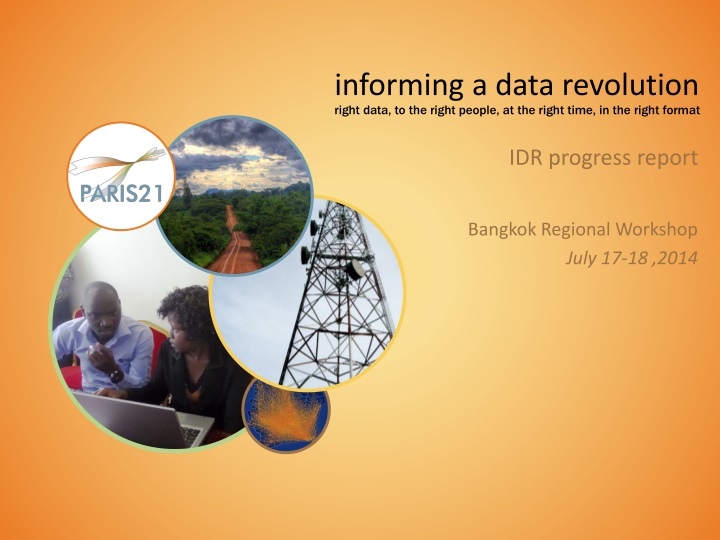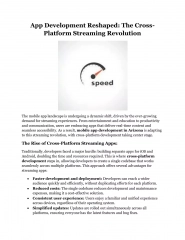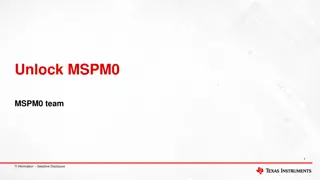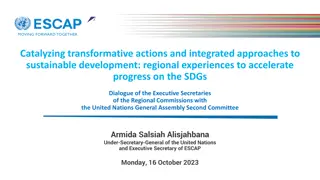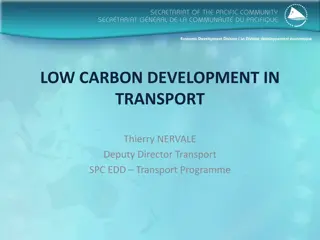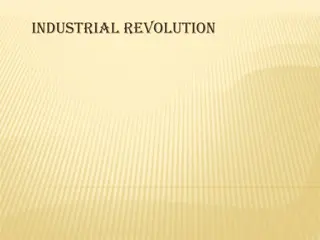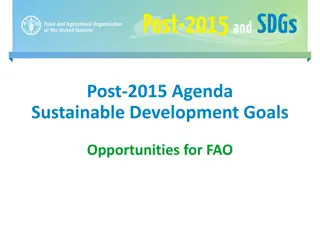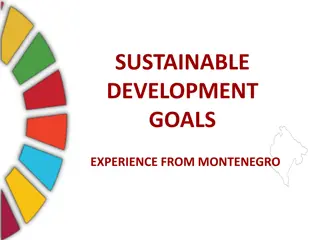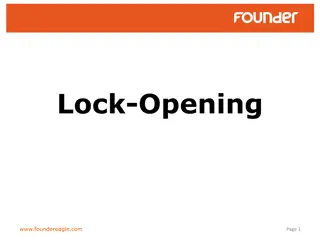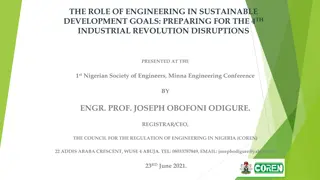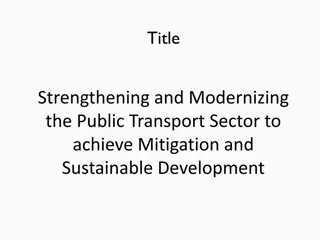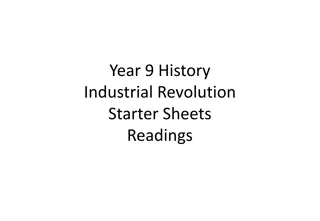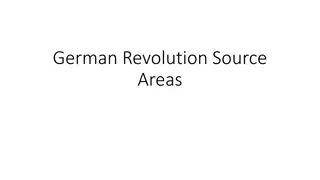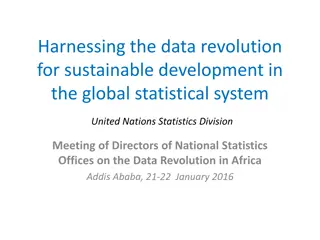Unlocking the Power of Data Revolution for Sustainable Development
The global call for a data revolution aims to integrate statistics into decision-making processes, promote open access to data, and strengthen statistical systems. Organizations like PARIS21 and the Bill and Melinda Gates Foundation are working towards a roadmap for an effective data revolution. This movement, sparked by the High-Level Panel of Eminent Persons in 2013, requires collaboration from various sectors to achieve sustainable development goals by leveraging the right data for informed decision-making.
Download Presentation

Please find below an Image/Link to download the presentation.
The content on the website is provided AS IS for your information and personal use only. It may not be sold, licensed, or shared on other websites without obtaining consent from the author.If you encounter any issues during the download, it is possible that the publisher has removed the file from their server.
You are allowed to download the files provided on this website for personal or commercial use, subject to the condition that they are used lawfully. All files are the property of their respective owners.
The content on the website is provided AS IS for your information and personal use only. It may not be sold, licensed, or shared on other websites without obtaining consent from the author.
E N D
Presentation Transcript
informing a data revolution right data, to the right people, at the right time, in the right format IDR progress report Bangkok Regional Workshop July 17-18 ,2014
informing a data revolution Whydo we need a data revolution ? What do we want to achieve? How will we do it? Who should be involved? When will it be done? 2
wanted: a new data revolution informing a data revolution A true data revolution would draw on existing and new sources of data to fully integrate statistics into decision making, promote open access to, and use of, data and ensure increased support for statistical systems. Anew global partnership: eradicate poverty and transform economies through sustainable development: The Report of the High-Level Panel of Eminent Persons on the Post-2015 Development Agenda, 30 May 2013, Chapter 4 3
why a data revolution? call for a data revolution in early 2013 by the High Level Panel of Eminent Persons on the Post 2015 Framework individuals and organizations around the world from academics to politicians, and civil society organizations to development banks, have been inspired to make the data revolution become a reality. many of us have a very different idea of what it means, and what it will take to get there. informing a data revolution 4
why a data revolution? informing a data revolution The Partnership in Statistics for Development in the 21st Century (PARIS21), along with the Bill and Melinda Gates Foundation, is seeking to: inform this discussion and produce a Road Map that will guide international leaders and policymakers, and national governments and statistical offices, in their path toward an effective, relevant, and sustainable development data revolution. 5
why a data revolution? We need to unlock the power of data informing a data revolution DATA INFORMATION Getting the right data, to the right people, at the right time, in the right format. KNOWLEDGE ACTION 6
the data revolution needs to . . informing a data revolution Be about more than just data Be about more than monitoring development goals Deliver quickly, 2030 will be too late Strengthen and sustain national statistical systems, but be much more than business as usual Be innovative, fill data gaps and make much better use of the data we do have Make better use of the opportunities provided by new technology Be built on a real partnership, with much better coordination at all levels 7
the data revolution needs to . . informing a data revolution The data revolution must address existing data gaps to ensure that better statistics lead to better decisions leading to better lives. This will require an understanding of the different types of data gaps, and how they relate to national statistical systems. 8 1
the data revolution needs to . . Think out of the box, but remain realistic informing a data revolution Build on what works, but make use of new opportunities Strengthen existing and create new partnerships 9 1
data gaps informing a data revolution Does the data exist? Are the data accessible? In 2012, about 230 million children under the age of 5 (approximately 1 in 3) did not have their births registered. Only a quarter of South Asian countries have a complete civil registration system. Out of almost 2000 surveys across 37 countries documented online by the International Household Survey Network (IHSN), only 42% are available for public use. Are the data reliable? Are the data relevant? It has been estimated that almost 80% of the growth in international remittances to developing countries over the past 20 years can be attributed solely to changes in measurement. While the MDGs only acknowledge 2 data points for Nepal s net enrolment ratio in primary education, many more national data exist yet do not conform to international standards. 10
the IDR project will.. informing a data revolution Take stock in countries of what is being done good and bad and find out about the needs of data producers and data users Explore innovations, finding out what works and seeing if and how it can be replicated Advocate for and promote a data revolution Produce a road map for the next five years 11
country studies informing a data revolution 12 1
country studies informing a data revolution Cross-country studies In-depth studies Azerbaijan, Botswana, Chad, Colombia, C te d Ivoire, Djibouti, Ethiopia, Gabon, Ghana, Guyana, Haiti, India, Liberia, Madagascar, Malawi, Mali, Mozambique, Nepal, Nigeria, Paraguay, Plurinational State of Bolivia, Samoa, Senegal, South Africa, Sir Lanka, United Republic of Tanzania, Timor-Leste, Uganda, Viet Nam. Bangladesh, Burundi, Cabo Verde, Democratic Republic of the Congo, Guatemala, Philippines, Trinidad and Tobago. 13
metabase informing a data revolution 14 1
metabase informing a data revolution Access Innovations Innovations offer solutions for today s problems and inform tomorrow s standards The public availability of data is the foundation of a better informed society Institutions A healthy institutional environment is a catalyst for statistical development Timeliness Timely data helps decision makers react quickly and stay informed Use Soundness A sound methodology builds trust in data and ensures transparency Knowledge on the demand for data improves efficiency in data production 15
innovations informing a data revolution 16 1
innovations informing a data revolution Strengthening international coordination - promoting harmonisation, developing and implementation of statistical standards and tools. Improving the ways in which the international statistical system and national statistical systems interact. New ways of financing statistical activities ,providing technical assistance, and aid for capacity building. 17
innovations informing a data revolution Strengthening the coordination and management of statistical systems in countries. Improving the organisation and management of statistical production processes - design, collection, processing, analysis, dissemination, archiving and evaluation phases of GSBPM. Developing tools and applications to support the analysis and use of statistics 18
innovations informing a data revolution Orange Data 4 Development Analysis of anonymised mobile phone call logs for insights into health, transportation, demographics, income inequality, and more The Big Idea Equipping young people with knowledge, skills, and platforms necessary to effectively interpret data in order to mobilise citizens to take action Strategy for the Harmonization of Statistics in Africa Enabling the generation of timely, reliable, and harmonized statistics, covering all aspects of political, economic, social, and cultural integration for Africa 19
research informing a data revolution Make sure the argument for the data revolution is clear and based on good research There is not a strong research base for the organisation of statistical activities The project will commission up to five different pieces of research All research will be independently reviewed and will be published by PARIS21 20
the road map informing a data revolution 21 1
the road map informing a data revolution 22 1
who needs to be involved? informing a data revolution Just about everyone: National statistical systems All kinds of data users Other data providers The owners and producers of big data The international community Civil society organisations Academics Private sector businesses The media 23
When? informing a data revolution Road map will be launched in July 2015 in advance of the UN General Assembly The Road Map document will be supported by a number of other outputs Clear vision of what the revolution is about Background documents including the country studies and the background research The Road Map will include an overview of how the revolution can be implemented, including an estimate of the financing requirements 24
timetable informing a data revolution Apr to Jul 2014 Country studies launched Study of innovations launched Background papers commissioned Jul to Oct 2014 Country studies completed Background papers completed Oct to Dec 2014 Synthesis of country studies Write up of innovations First draft of road map prepared Jan to Mar 2015 Final draft of road map prepared Apr to Jun 2015 Final version of all documents July 2015 Launch of the Road Map 25
